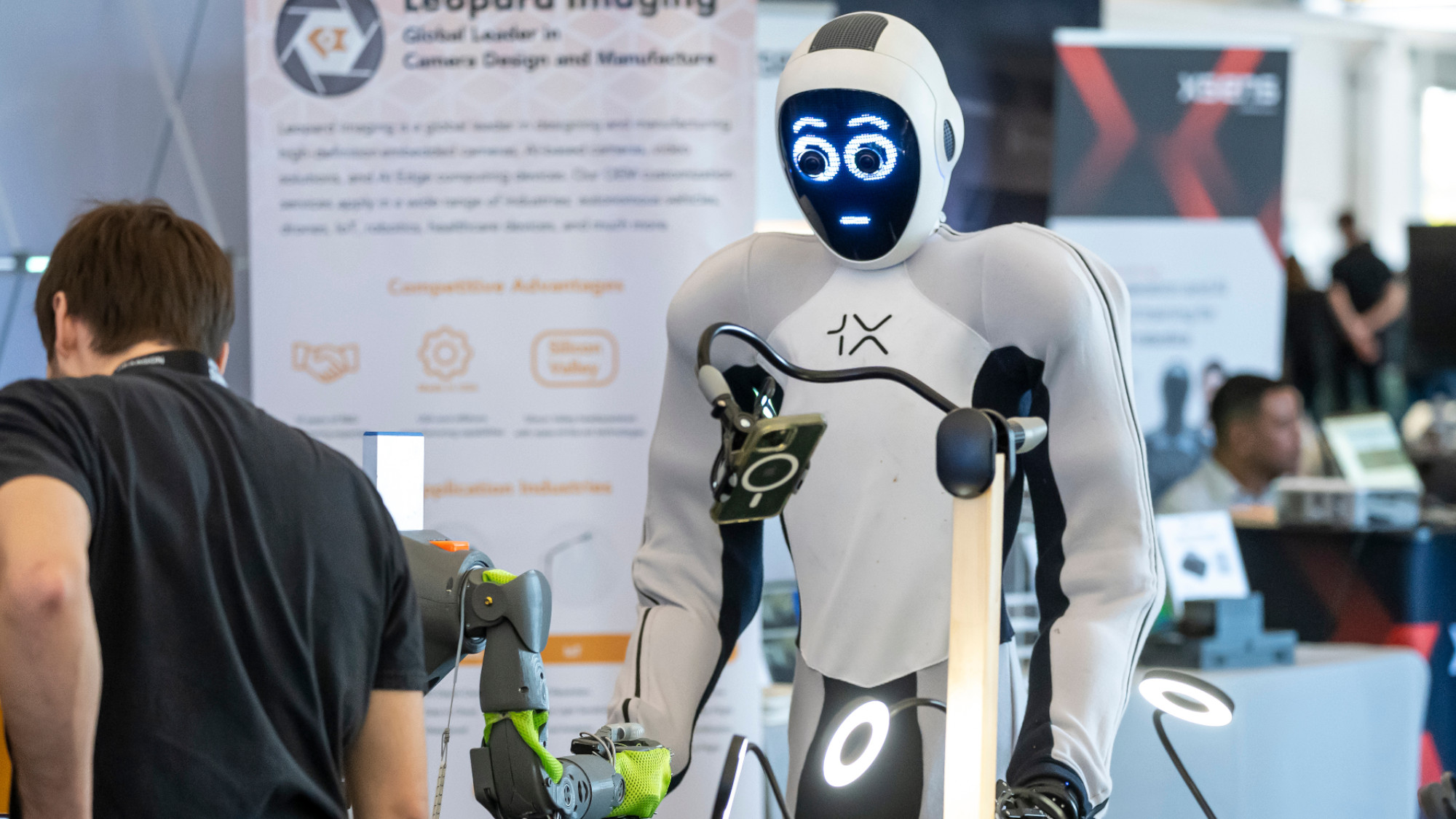Space-age living: The race for robot servants
Meta and Apple compete to bring humanoid robots to the market

A free daily email with the biggest news stories of the day – and the best features from TheWeek.com
You are now subscribed
Your newsletter sign-up was successful
A robot butler in every home sounds like “the stuff of science fiction,” said Mark Gurman in Bloomberg, but we’re getting closer. Two tech giants, Meta and Apple, have recently begun preparing to go head-to-head in the battle to bring to market humanoid robots “that can fold your laundry, load up the dishwasher, or even push the kids on the swing.” They’re entering a playing field where roughly a dozen other robotics companies, like 1X Technologies, are already working on similar projects. They’ll also be up against Tesla, which has been developing its general-purpose robot, Optimus, since 2021.
We are still years away from humanoids being commonplace—or remotely affordable—“but it’s clear that companies are taking the work very seriously,” Gurman added. Meta is starting a new unit “dedicated to the development of humanoid technology,” with the near-term goal of building the “underlying software platform” that can bring robots to life. Apple’s robotics work is being overseen by Kevin Lynch, who helped create the original Apple smartwatch.
Re-creating Rosie from The Jetsons has been the fantasy ever since the cartoon premiered in the 1960s, said John Koetsier in Forbes. Humanoid robots that can augment or replace human labor are “a blue ocean field” of opportunity with no clear leader yet. “But taking on a massive project” like this one “is not for the faint of heart.” Apple knows. It spent more than $10 billion on an electric-vehicle concept, the Apple Car, “only to eventually kill the project” after numerous setbacks. That’s why tech companies should focus on more realistic artificial intelligence applications, said Robin Harding in the Financial Times, such as robotaxis and robot vacuums. Creating a humanoid robot “that can cook dinner and clean toilets” is an order of magnitude more difficult, because it requires breakthroughs in hardware, not software. Accurately replicating human muscle movements and discriminating objects via touch is proving extraordinarily costly and complicated. “Even a revolution in AI” does not make these physical obstacles disappear.
The Week
Escape your echo chamber. Get the facts behind the news, plus analysis from multiple perspectives.

Sign up for The Week's Free Newsletters
From our morning news briefing to a weekly Good News Newsletter, get the best of The Week delivered directly to your inbox.
From our morning news briefing to a weekly Good News Newsletter, get the best of The Week delivered directly to your inbox.
But AI will help, said Nicholas Wright in Foreign Policy. Tech companies “have exhausted all the world’s easily accessible data for training models.” What’s left is “data grounded in reality,” from a robot that is learning—like a child does—“how to act in the physical world.” Building human-like robots that can interact with humans “leads to more data from which their AI can learn, which leads to better AI that enhances the robots so they can take on more jobs.” This is the mutually reinforcing spiral “that makes humanoid robots such a glittering prize.” Already, China is “pouring a firehose of startups into humanoid robots.” The U.S. is finally recognizing that the scramble to build Rosie “may be the most consequential technological race of the next decade.”
A free daily email with the biggest news stories of the day – and the best features from TheWeek.com